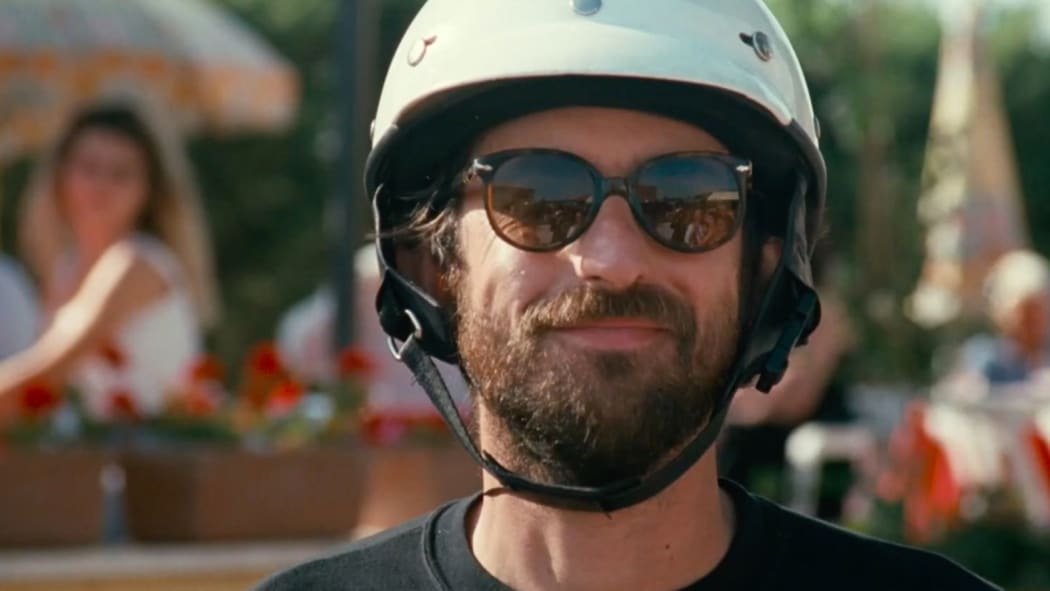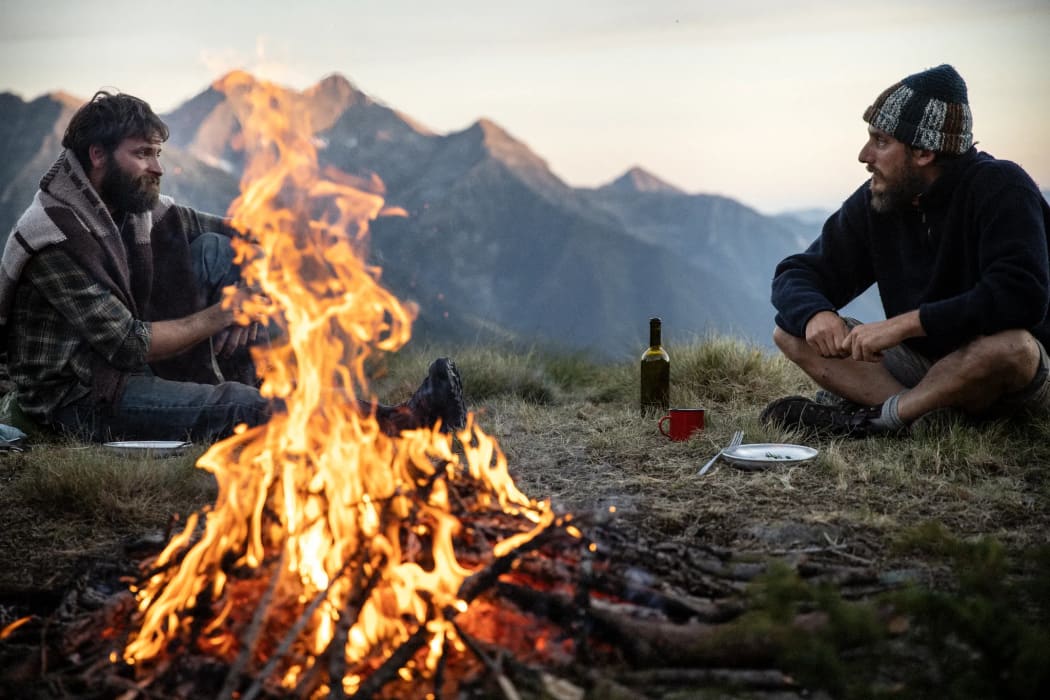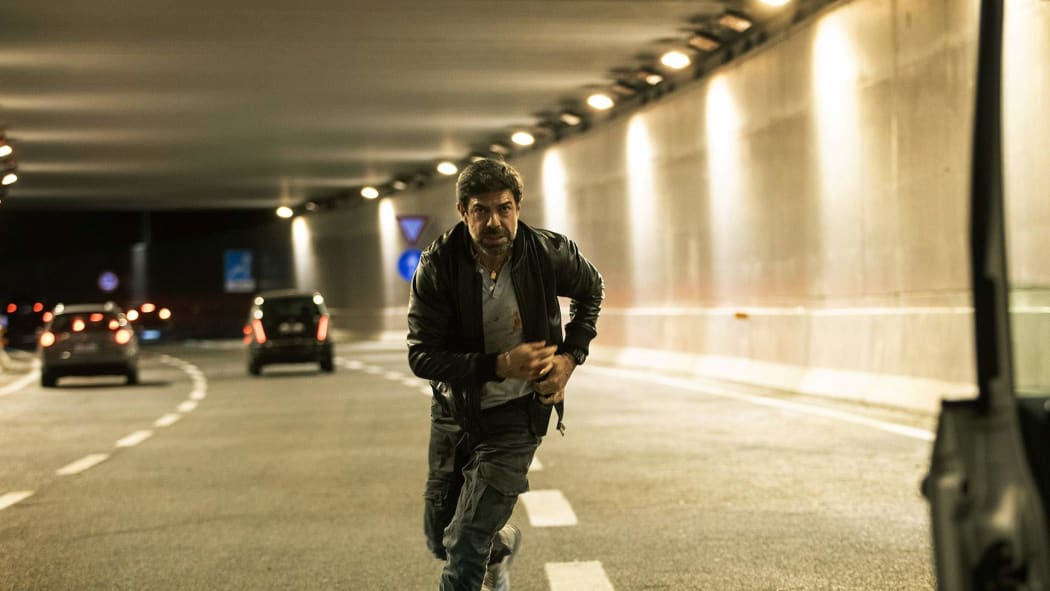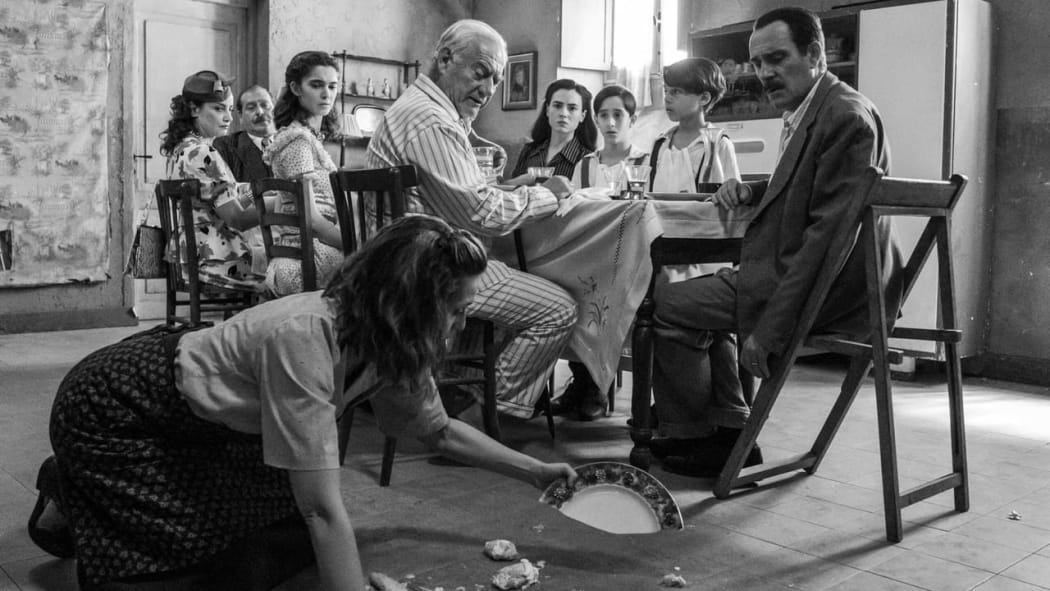Dan Slevin checks out three of the 24 features, documentaries and classics screening in this years Italian festival.

Photo: Italian Film Festival
It may or may not be the best of the regional film festivals offered to New Zealand audiences this year, but the Italian Film Festival is almost certainly the longest. For ten months, this festival winds its way around the country visiting dozens of cinemas and entertaining many thousands of cinemagoers.
Festival director Paolo Rotondo has breathed fresh energy into the event over the last few years and for that he has recently been rewarded with the coveted title of Cavaliere dell’Ordine al merito della Repubblica Italiana – effectively a knighthood for services to Italian culture.
His festival this year showcases Nanni Moretti, one of my favourite filmmakers (not least because he made the rare transition from film critic to film director). His 1993 debut Caro Diario (Dear Diary) is a very fond memory for me and I’m looking forward to making its acquaintance once again. Other restored classics getting a look in include Moretti’s Aprile (1998) and Federico Fellini’s own debut The White Sheik (1952).
As is my propensione, I asked the organisers to give me an advance look at three of the more recent films from the festival that would give me a decent overview.
The Eight Mountains (Le otto montagne)

Photo: Italian Film Festival
Having only done the tiniest bit of homework before this film began, I had thought that this was the story of two mountaineers who climb eight mountains together over a lifetime of friendship.
I got the friendship bit right, but in fact the film is more of a spiritual and emotional journey than a physical one. There are mountains – the friends meet as children in the Italian Alps and the mountains, they are beautiful – but the title refers to the Buddhist concept and that the eight mountains are within us to be overcome.
In 1984, middle-class Pietro spends a summer in Grana where he befriends Bruno, the only child left in the village as economic change has forced the population to move away for work. Despite becoming great friends, they are estranged during adolescence and the adult Pietro (Luca Marinelli) is surprised to discover that his parents had kept in touch with Bruno (Alessandro Borghi), and even bought an old hut for him to restore.
Friends again, Pietro and Bruno embark on the rebuild together and they both seem to have found a sense of purpose that had previously eluded them.
As adulthood goes on, though, life challenges the two men differently and we see how easy it is for male friendships to drift apart. Because of the assumptions we make, we often think that we don’t need to ask questions, or check in on our friends, because when we are together it seems so easy. Until all of a sudden, it isn’t.
The grand alpine (and Himalayan) backdrops provide a sense of the scale of human existence, but they don’t diminish the scale of the emotion or feeling of being human. Felix van Groeningen and Charlotte Vandermeersch’s film reminds us of that.
Last Night of Amore (L’ultima notte di Amore)

Photo: Italian Film Festival
The title doesn’t translate into “The Last Night of Love” as it might seem to someone with only my passing knowledge of Italian (and which would make it a very different kind of film). Amore refers to the retiring detective Franco Amore (Pierfrancesco Favino), a throroughly decent cop expecting a ‘surprise’ retirement party and plenty of time to enjoy his pension.
Instead, partly because of that decency towards his friends, he becomes embroiled in a smuggling operation with some Chinese crooks and the shocking death of his partner.
Throwing out all his principles – he is known as someone who has never fired his service weapon – as well as admitting to his wife (Linda Caridi) that one dumb mistake has put his entire family at risk, Amore has to get used to having blood on his hands as he cleans up his mess.
One of those cracking ‘it all happens over one night’ thrillers, writer-director Andrea Di Stefano expertly manages the pace. We spend a long time at the crime scene where none of Amore’s colleagues know that he was involved and we recall that crime scenes are like film shoots – an awful lot of waiting around for something to happen, but when it does? Boy, it goes off.
The night photography is fantastic, much of it shot from overhead via drones or chopper. Milan looks amazing.
There’s Still Tomorrow (C'è ancora domani)

Photo: Italian Film Festival
In complete contrast, There’s Still Tomorrow is designed to be reminiscent of the famous Italian new Wave films of the immediate post-war period. Shot in black and white and set in a Rome that is still reeling from the effects of war and the overthrow of fascism, it’s the story of Delia (Paola Cortellesi), a wife and mother, struggling to make ends meet through a series of jobs, but at least when she’s out of the house she isn’t being abused by her brute of a husband (Valerio Mastandrea).
Cortellesi also directed, and co-wrote, the film and while it wants to remind us of the New Wave, it diverges in significant ways, too. In De Sica’s Bicycle Thieves (set around the same time), the poverty is palpable. The family at the centre of that film have to pawn their bed sheets in order to get a bicycle so the downtrodden family patriarch can win back his pride simply by getting a job. The family in There’s Still Tomorrow are poor – and the class distinctions even among the lowest in society are a plot point – but they have food, lots of room, and friends who seem to be making ends meet too.
The struggle in There’s Still Tomorrow is the struggle for women to be able to live fully as human, without having to beg their men for money, time and choices. An arresting mix of ugly drama, family comedy, social comment and anachronistic music cues, There’s Still Tomorrow was a huge hit in Italy last year – beating both Oppenheimer and Barbie.
It turns out that a film celebrating the efforts to win female independence in real-life Italy is more popular than the fantasy independence of a plastic toy franchise.
The Italian Film Festival opens at the Silky Otter in Ponsonby on April 29 and then proceeds to traverse 27 cinemas in 19 different locations over the following 10 months. Details can be found at the festival website.

